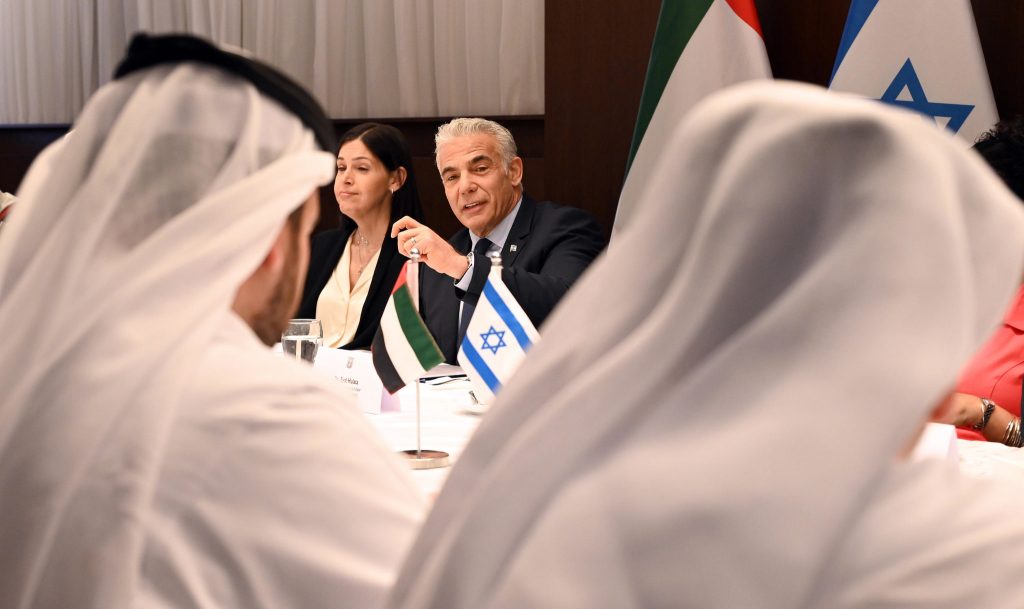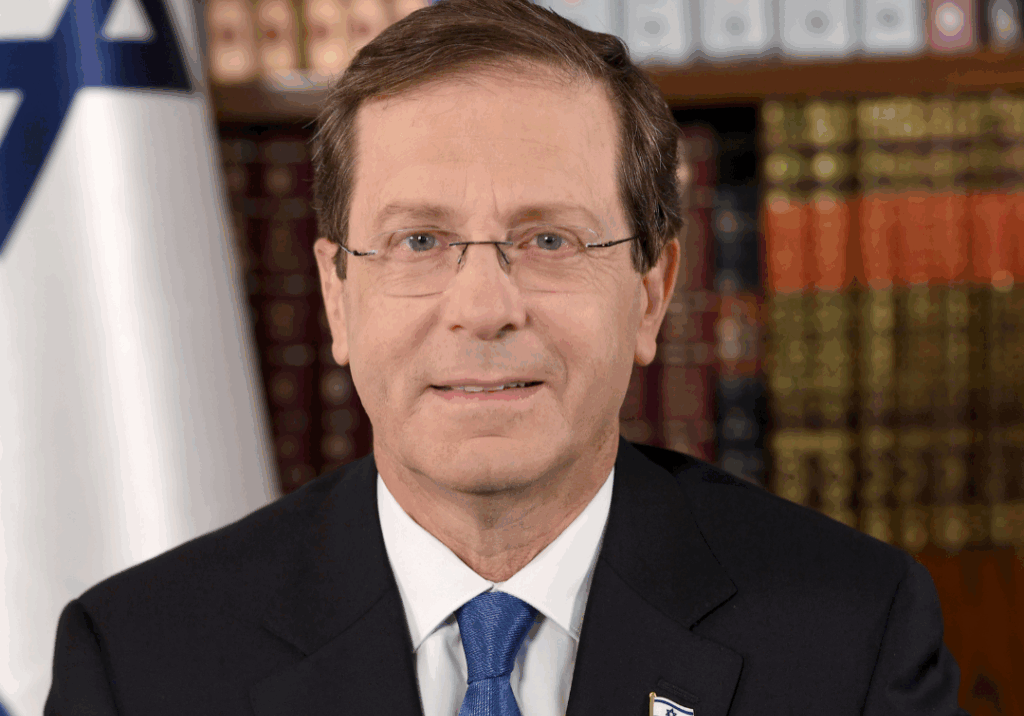Australia/Israel Review, Featured
Editorial: Theodor and Abraham
Sep 28, 2022 | Colin Rubenstein

In late August, AIJAC joined representatives of Zionist organisations around the world in Basel, Switzerland, to commemorate the 125th anniversary of the First Zionist Congress, the body credited with launching the contemporary political movement to re-establish a Jewish state.
Today, the thriving fruit of that Zionist movement, Israel, remains the world’s only country reborn through an ingathering of exiles, reconstituting a democratic state in the land where they became a nation so long ago.
The journey was arduous and the struggle long, giving deeper meaning to the expression “self-determination”. From meagre beginnings, building by building, immigrant by immigrant, kibbutz by kibbutz, the pioneers known as “halutzim” purchased and redeemed land, drained malaria-infested swamps and miraculously revived Hebrew language and culture.
At the same time, the halutzim sought a peaceful engagement and dialogue with local Arabs, with mixed initial success. Sadly, these efforts ultimately failed, largely due to venomous incitement by influential muftis, built upon malicious lies and distortions.
Why did so many Jews choose to uproot themselves and enlist in a risky, collective, embryonic national project that, certainly in the early stages, resembled a pipe dream, unlikely to succeed?
On the one hand, modern Zionism, the brainchild of author and visionary Theodor Herzl, was an idea borne out of the Jewish suffering of 2,000 years of exile, statelessness, antisemitic persecution and pogroms.
Yet while Zionism was a response to antisemitism, it was in equal measure the product of the most forward thinking social revolutionaries and political theorists of its day – seeking to bring Jews together to reclaim a common destiny and recreate a Jewish polity that would combine tradition, modernity and innovation.
In hindsight, Herzl foresaw Israel as a “startup nation” generations before the concept existed. He didn’t envision a Jewish utopia, but a country full of the nuances and complexities integral to every mature nation. In many ways, he was prophetic.
Yet even a visionary like Herzl might be impressed by the vast leaps that his dream for the future Jewish nation-state has taken toward fulfilling his hopeful vision over the last two years. Since the signing of the Abraham Accords in 2020, the advance in relations between Israel and much of the Arab world – and the degree to which they herald full integration and genuine acceptance of Israel in the Middle East after all these years of rejectionism – have been nothing short of astonishing. As Israeli President Isaac Herzog recently noted, these transformative agreements have led to “a paradigm change in the Middle East” – and done so with amazing speed.
US-brokered normalisation agreements between Israel and the United Arab Emirates and Bahrain were signed at the White House on Sept. 15, 2020, and later joined by Sudan in October and Morocco in December of that year.
Much of the security cooperation enabled through the pact was made against the backdrop of increasing Iranian aggression in the region, as well as Teheran’s nuclear weapons ambitions. But the agreements have also led to blossoming economic ties that have nothing to do with Iran.
We have seen a free trade agreement inked between Israel and the UAE. Israeli tourism has soared in Dubai, and ushered in the establishment of a Jewish community servicing all the needs of Jewish visitors including synagogues, kosher restaurants and catering. Meanwhile, in the wake of the pandemic, Israel has opened its doors to visitors from the UAE and hopes to eventually attract 100,000 visitors per year.
On the security front, in November 2021, Israel, the US, the UAE and Bahrain held a naval drill in the Red Sea, while in the same month Israel Aerospace Industries and the UAE’s EDGE Group signed deals to work together on a broad range of defence industry projects.
This past February, Israeli Defence Minister Benny Gantz and Bahraini Minister of Defence Affairs Lt.-Gen. Abdullah Bin Hassan Al Nuaimi signed a historic security cooperation agreement that normalises defence relations between the two countries, with an eye towards increasing intelligence sharing, military-to-military training, and collaboration between both countries’ defence industries.
With regard to Morocco, direct flights began in 2021, and people to people ties have burgeoned. Meanwhile, on the security front, IDF Chief of Staff Lt. Gen. Aviv Kochavi and his Moroccan counterpart, Lt. Gen. Belkhir El Farouk, exchanged visits to Morocco and Israel this July and September, respectively.
The high level of security cooperation between Israel and regional Arab countries made possible by the Abraham Accords has led to a US-sponsored regional air defence alliance, with a focus on the Iranian threat, that has already foiled Iranian attacks, as Gantz told reporters in June.
The rapid progression of closer ties between Israel and the signatories of the Abraham Accords over the past two years is a sign that the change in Arab attitudes towards Israel – once under the table and now out in the open – have undergone a decisive, enduring shift. It will almost certainly accelerate as more and more countries see the potential benefits of a peaceful and prosperous shared future that comes with enhanced ties to Israel instead of clinging to the knee-jerk hostility of the past.
As the Abraham Accords widen the circle of peace between Israel and the Arab and Muslim worlds, we can only hope that the Palestinians, in their own best interests, also soon end their rejectionism, renew genuine negotiations, and accept a state entity living in peace side by side with Israel.
When that happens, all the children of Abraham can live in peace and prosperity, and Herzl’s dream will be realised to its fullest measure.
Tags: Abraham Accords, International Jewry, Israel, Zionism






